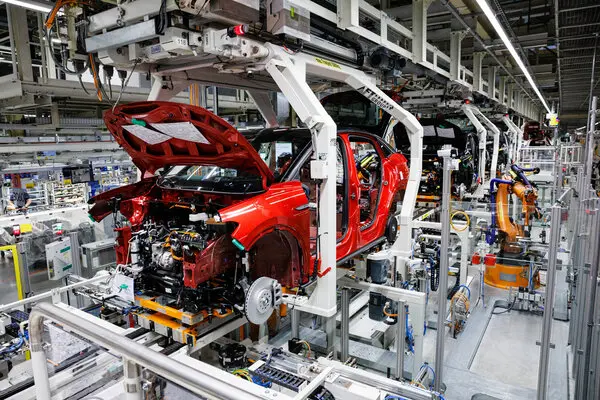The United Group of the Automotive Industry of the Dominican Republic (GUIA-RD) reported that the automotive sector concluded 2023 with over 130,000 imported new and used vehicles. This marks an annual growth of 11% over the past decade, significantly outpacing the general economy’s GDP growth of 5% in the same period.
GUIA-RD expressed support for the recently issued decree 420-23, which establishes regulations for the National Registry of Motor Vehicles, Trailers, Licenses for Dealers, Distributors, and Sellers, and the Classification of License Plates. Wendy Capellán, the executive director of GUÍA-RD, emphasized that this decree is instrumental in modernizing processes in line with the rapid growth of the vehicle fleet.
The regulation, having undergone two public hearings by the General Directorate of Internal Taxes (DGII) and the Legal Consultancy of the Executive Branch (CJPE), received inputs from various associations and institutions. It aligns with Law 63-17 on Mobility, Land Transportation, Transit, and Road Safety, aiming to enhance consumer protection and regulate vehicle importation.
Capellán highlighted that the regulation will help combat irregular practices, such as importing vehicles with altered odometers, right-hand drive cars converted to left-hand drive, and salvage cars prohibited in their country of origin due to accidents or disasters. This measure also targets vehicles with falsified documents, ensuring user safety and environmental protection in compliance with existing laws.
GUIA-RD supports the update of the General Standard on Transfers and Endorsements in the Transfers of New and Used Motor Vehicles (Standard 06-2013). The proposed revisions would maintain the standard’s essence while aligning with reliable payment proof requirements set by General Standard 06-2022. This update aims to eradicate tax evasion and comply with Law 155-17 Against Money Laundering and Terrorism Financing, adhering to international agreements signed by the Dominican Republic.
The DGII has implemented several measures benefiting the sector, including the establishment of Motor Vehicle Service Centers, provisional electronic license plates, and the consensual issuance of Motor Vehicle Regulations. These initiatives save taxpayer time, improve quality, and create taxpayer facilities.
In conclusion, Capellán reiterates GUIA-RD’s strong support for the DGII’s efforts in promoting law compliance, fair competition, improving the vehicle fleet’s quality, and safeguarding consumer rights, in accordance with the Dominican Republic’s Constitution. (https://dominicantoday.com/dr/local/2024/01/02/dominican-republics-automotive-industry-sees-significant-growth-and-supports-regulatory-decree/)





































